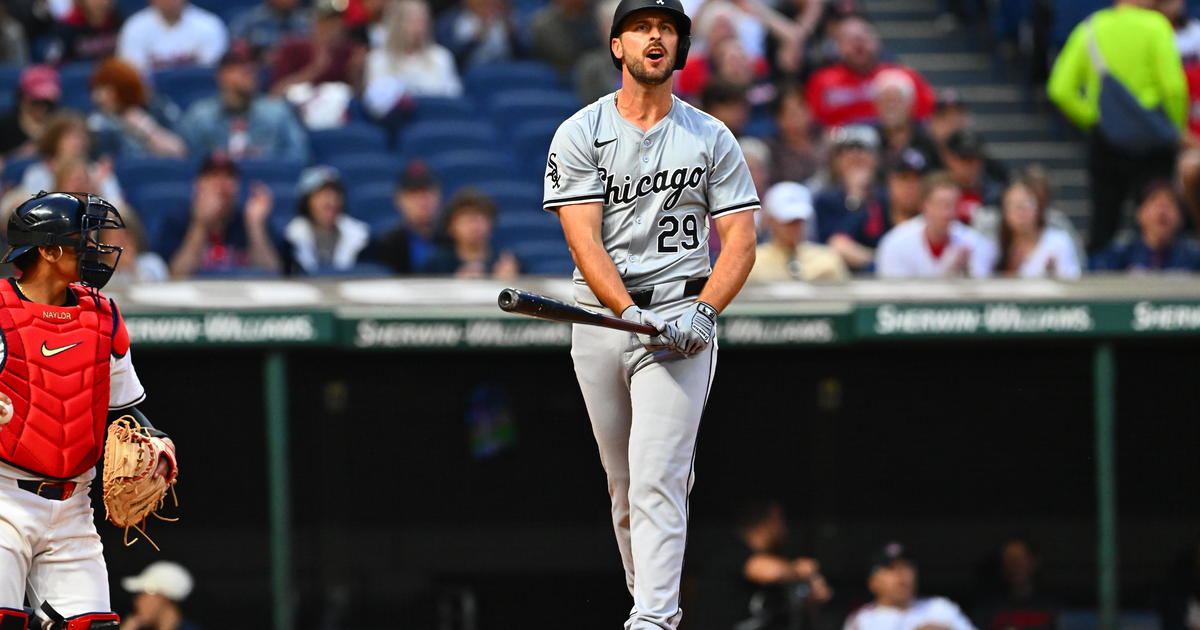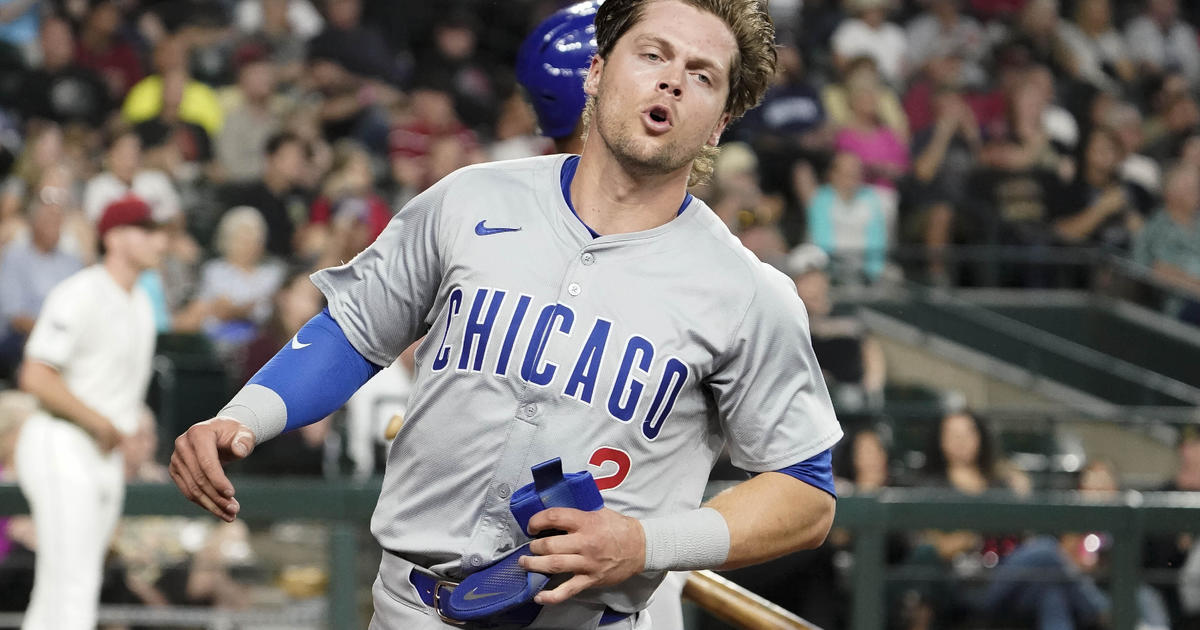Lyons: An All-Star Game Solution That Still 'Counts'
By Brett Lyons-
(CBS) Major League Baseball's All-Star Game has transformed from must-see television on a warm, muggy Tuesday night in July to an unwatchable laughingstock in the span of a decade.
The reason?
"This one counts."
Perhaps the beauty of previous All-Star games is how free-spirited they were. Together for one night, baseball's biggest stars showed a non-typical allegiance to one another in an effort to represent their league – proving which circuit is superior in the sport.
Ever since the 2002 exhibition showcase in Milwaukee that resulted in a 7-7 draw, MLB commissioner Bud Selig has transformed this light-hearted, feel-good contest into an unnecessarily meaningful affair.
Beginning the following year with 2003's annual installment at U.S. Cellular Field, the winning league has gained home-field advantage in that year's World Series. And while this concept seemed practical to prevent any future ties going forward, the "this one counts" gimmick has taken away from the meaning of the All-Star Game.
By making the game matter, Selig has inversely watered down the contest's interest.
Before 2003, a manager's biggest concern was how to find a pinch hit at-bat for every man on his bench. The game was just that – a game. It was all about showcasing your best against the opposition, all while avoiding injury and unnecessary fatigue.
Nowadays, managers have to walk the fine line between what's fair to the entire roster and what needs to be done to competitively gain a competitive advantage. Again, this one counts.
If the All-Star Game really mattered, then in theory shouldn't the starters remain on the field for the entire duration of the game? Shouldn't an ace pitch six innings, giving way to a bullpen that faces batters based on matchups? If this game is to be played like a meaningful regular-season game, then why isn't it acceptable for a manager to do so for the sake of his league?
As much as I hate the fact that the Midsummer Classic has meaning, there's no doubt that baseball is going to stick with the twist. In his final year, Selig would ride off into the sunset with egg on his face for having a failed experiment and admitting it was a dud. I can't imagine the sport's next commissioner will be in a rush to correct one of his predecessor's largest impacts on the game immediately.
So as long as the All-Star Game is going to "count," baseball needs to have it matter for something worth fighting for – as long as that prize doesn't directly shape its championship series.
The best solution I could brainstorm involves one of Selig's more successful creations – the additional wild card.
Beginning last season, baseball instituted a second wild-card berth in both leagues, bringing the total number of postseason contenders to 10. Each league now features three division winners and two wild-card teams the postseason. The two wild card clubs play a one game winner-take-all bout that determines who advances to the divisional series.
And while the addition of a whole two additional playoff games doesn't seem like a significant change to the playoff landscape, this new wrinkle has directly impacted how teams function during the season.
More clubs have been willing to go for it all and buy, buy, buy come the trade deadline. With there being an extra playoff berth on the line, teams have reflected the mentality that they could possibly make the year-end tournament by adding some bits and pieces. Why not go out and find that left-handed power bat? Or maybe that extra reliever to replace that struggling John Doe? And while you're at it, how about shoring up the end of that rotation with a veteran starter with postseason experience?
Overall, an extra wild card for both leagues is good for the sport. It holds out false hope of a championship parade for extra cities across the country, keeping the sport's interest up longer into the season. Who knows, maybe viewers would even bypass watching pigskin on Sundays in September in favor of catching their teams battle other playoff-contending squads for a stranglehold in the standings?
Introducing extra playoff contenders has been received as successful thus far. Overall, more teams mattering for longer amounts of time and generating more interest throughout the season in healthy for the sport.
My logic, then, is to help one of the game's weakest aspects with one of its newer and more well-received additions. If baseball is insisting on having a dramatic outcome for the All-Star Game, but fans don't care for the home-field twist, then maybe a decade of disappointment is enough of a sample size to call for a change?
My proposal to Selig is simple. Whichever league proves victorious in the All-Star Game should be rewarded with the single, additional wild card. The league that loses shall provide just four postseason clubs, like it used to be prior to 2013.
Still having something to play for is important for MLB to save face on "this one counts." Having the leagues fight for the fifth playoff spot would render a huge outcome on the sport's midseason DNA. Imagine how frantically a team that's on the bubble could make a drastic addition to its roster if suddenly there are five playoff spots and not just four? And vice versa for the league that loses. Perhaps the seventh place team was thinking of pulling the trigger on that overpowering southpaw on the trade market but no longer finds it worth giving up a top-tier prospect because the odds of making it to the playoffs are less than if their league had won.
The possibility of increasing your individual team's chances of making it into October is something that every player in both All-Star dugouts should find worthy of playing for – unless of course, you're a Chicago baseball fan, in which case you're counting down the days to Bears camp in Bourbonnais.
Granted, this is no perfect solution to the problem at hand, but it's a way to still directly affect the postseason picture through a competitive contest without touching the World Series itself.
Decreasing viewership in the All-Star Game has been steady. The last Midsummer Classic to break a 25 share was in 1998, the year of Sammy Sosa and Mark McGwire's head-to-head chase for baseball's single season home run record, according to Baseball Almanac.
Since that season, the numbers have been on the downfall. The 1999 season yielded a respectable 22 share. The early 2000s, in general, flirted with a high teen number each year. But since the home-field advantage prize went up for grabs in 2003, the shares have dropped almost annually. The exhibition game has not drawn better than a 13 share in the last four years.
Interest in the All-Star Game is down, and the sport's laughable "trophy" for winning the All-Star Game is to blame.
When something doesn't work, it needs to be corrected. It's evident the All-Star Game is broken, so why not change it for the good? Perhaps a second wild card for the league isn't the ideal solution, but it's drastically better than the system in place right now.
Some fans would even take the radical stance that the All-Star Game should go back to its pre-2002 mindset and just present a fun event to watch, perfect for practicing how to fill out a baseball scorecard for pinch-hitters and relief pitchers.
Maybe the game should just be … a game? But it won't.
Why not?
Because this one counts.
Brett Lyons is a producer and board operator at 670 The Score. You can follow him on Twitter @Brett__Lyons.



